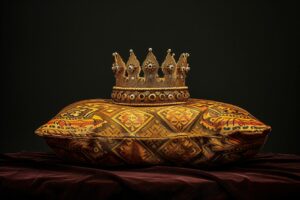On Saturday when the New Zealand All Blacks will challenge the Irish in the quarter-final of the Rugby World Cup, Dylan Moodaley, a 32-year-old South African, will put on the famous black jersey with the silver fern and support one of the historic rivals from South Africa.
Like him, a significant minority of South Africans support the Blacks for reasons combining family tradition , politics and New Zealand’s love of the game.
“There are a few free electrons who support France and Australia, but I don’t know any who are behind the South African Springboks,” Moodaley says of his extended family, based in Cape Town .
This passion of a South African minority for the All Blacks dates back to the apartheid period , when the national rugby team was seen as a symbol of the white segregationist regime .
For 90 years, the Springbok team was only made up of white players, with black or “coloured” rugby players , a notion inherited from apartheid to designate mixed-race people , being confined to secondary championships without access to the international scene.
“Support for the All Blacks among blacks and coloreds has its origins largely in the interpretation that a defeat of the Springboks was a defeat of white South Africans and apartheid,” explains Sebastian Potgieter, South African historian. sports specialist at the University of Otago in New Zealand.
Heston Botha, 64, president of an All Blacks fan club in the Indian Ocean town of East London, fondly remembers the day his father took him to the stadium to see a All Blacks match in 1970.
Segregation then governs all aspects of daily life and they are parked away from white supporters, behind the posts. “There were so many of us that we couldn’t even sit down ,” recalls Botha. In this enclosure, he continues, “99% of people supported the All Blacks” .
For the first time, the Blacks were able to bring in Maori or Pacific Island players, the South African regime having granted them the exceptional status of “honorary whites” . “For the oppressed black and colored populations, these players represented everything that apartheid denied them ,” analyzes historian Potgieter.
Seeing New Zealand rugby stars like Bryan Williams and Sid Going , whose prowess he knew from the radio, evolve in the flesh, was a “decisive turning point” for Botha, who then definitively adopted the black jersey.
Five decades later, his passion led him to book a room in the same hotel as the New Zealand team during their trips to South Africa , to try to catch a glimpse of his idols at breakfast. “They are the gentlemen of this sport ,” he sums up.
Meanwhile, apartheid ended in the early 1990s and the Springboks enjoyed growing popularity. After years of sluggish efforts to promote diversity within the national team, in 2018 Siya Kolisi became the first black player named captain in a test match.
A year later, he led his team to glory by winning the Rugby World Cup , sparking the growing enthusiasm of many young black compatriots for the oval ball.
The more inclusive nature of the team, and of the discipline in general, has become a communication argument: the Springboks’ slogan for this 2023 World Cup “Stronger together” echoing the “One team, one country” of the selection which won the trophy at home in 1995, with the support of Nelson Mandela.
Still, for some, the changes do not yet go far enough. The name and emblem of the team (the gazelle) “are problematic” , explains Philani Nongogo, a supporter of the Pretoria Blacks, believing that it should have been modified to reflect the evolution of the team.
For others, like Botha, the excellence and success of multiracial selection does little to hide the persistent socio-economic divisions and disparities in a country described by the World Bank as the most unequal in the world. “It’s a facade image for South Africa ,” says Botha.
Dylan Moodaley, who grew up in a democratic South Africa, is not unaware of the political aspect of the discussion but for him, passion for Blacks comes down to a family affair .
His first memory of the oval ball dates back to the 1995 World Cup , when legend Jonah Lomu “set the planet on fire” . The pleasure of following the exploits of one of the most dominant teams in rugby history did the rest.
“There are so many things to love about them, their history, their culture, their style ,” enthuses the environmental consultant. “I don’t feel the same attraction to the Springboks. They just don’t give me the thrill.”
Source: Africa News















